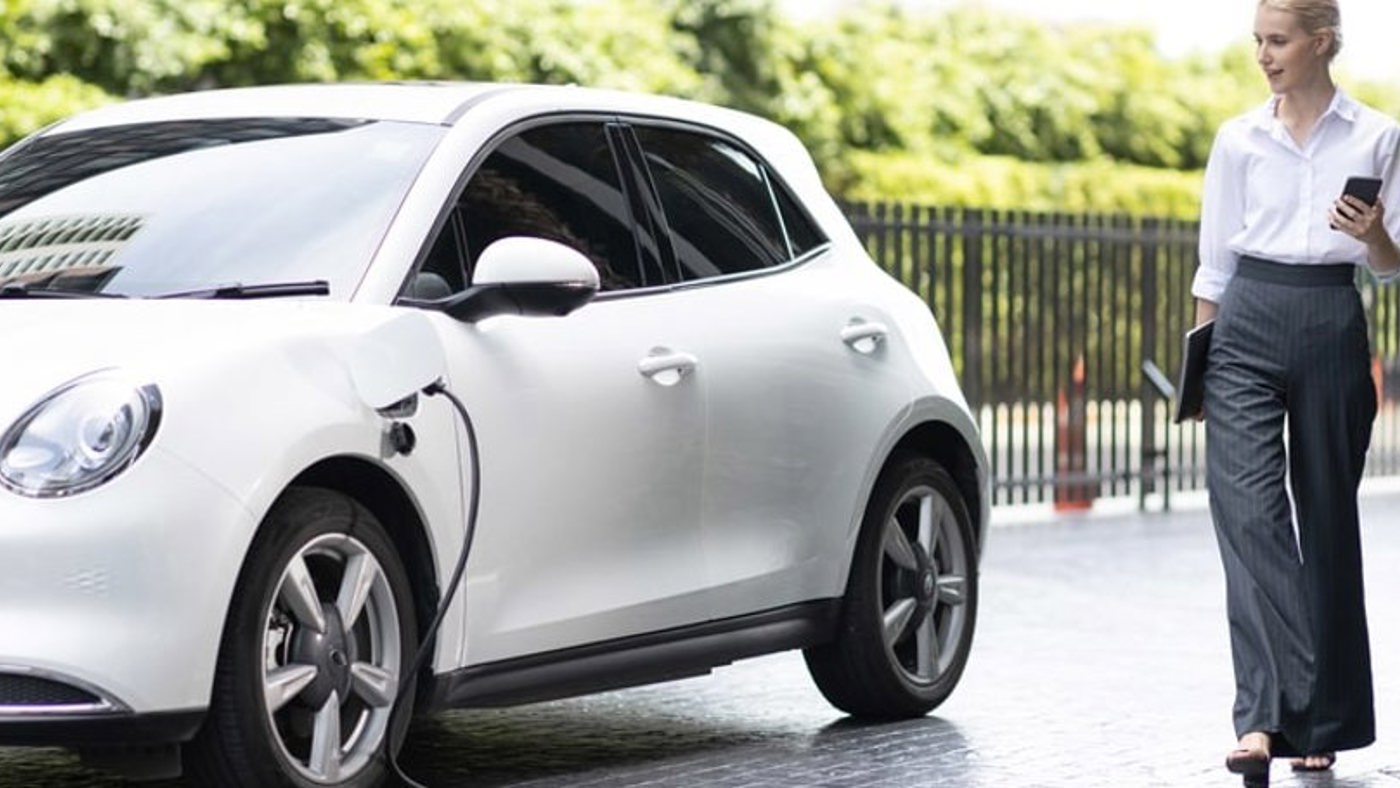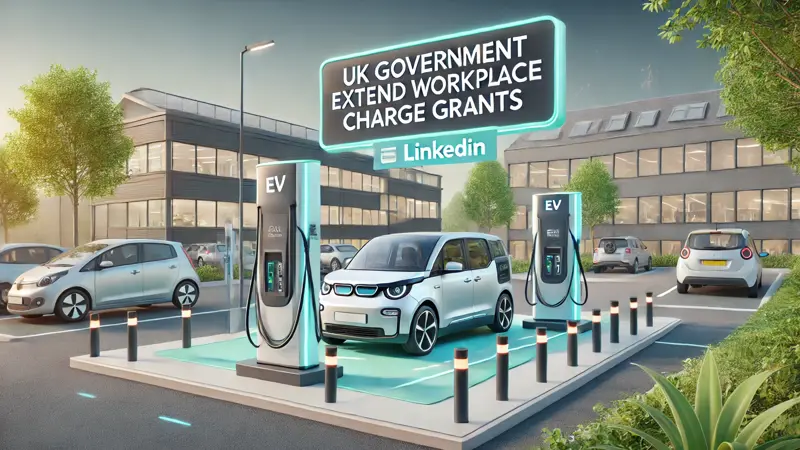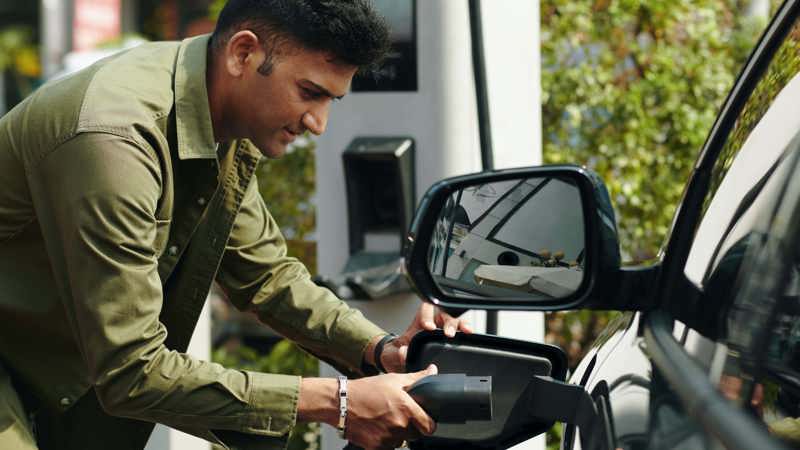
EV News: Charger Milestones and Falling Second-Hand Prices
Osprey Charging Hits 1000 Rapid Charger Milestone
Osprey Charging, a prominent player in the UK's EV charging infrastructure landscape, celebrates reaching a significant milestone by installing over 1000 public rapid EV chargers across the country.
This achievement represents 150% growth for the network, making it the third largest Charge Point Operator in the UK for public rapid and ultra-rapid chargers according to Zap-Map, having recently awarded the network recognition as a ‘Driver Recommended Network’ for the fourth consecutive year.
Ian Johnston, CEO of Osprey Charging, highlights the importance of this expansion: “With over 1,000 public rapid EV chargers now available on the Osprey network, we are providing the essential infrastructure that drivers and industry are calling for to support the electric vehicle revolution.”
Falling Second-Hand EV Prices in the UK
Despite the positive promise of network expansion in the previous story, a lack of chargers is still being touted as a pain point when making the EV switch. In the latest study, the publication inews reported this week pointing to the lack of chargers putting off buyers despite news that the average price of a used EV has now dropped below £20,000.
A report from the AA found that prices of used electric and hybrid vehicles have dropped by 12 per cent over the last year, from £22,158 to £19,548. Models such as the Seat Mii Electric and Volkswagen e-Up have seen price drops of more than 40 per cent.
This will undoubtedly come as welcome news for those in the market as second-hand EV buyers, with motoring groups suggesting second-hand EVs will become as cheap as combustion engine vehicles within the next couple of years.
The article points to a few different reasons for this declining resale value including a lack of consumer confidence over battery ranges, a lack of Government tax incentives, and concerns over the charging infrastructure. Regarding the latter, experts cited so-called charging blackspots especially in rural areas as particularly difficult for drivers, with Cornwall called out for having just one charger for every 471 electric vehicles during the busy summer tourism season.
EV enthusiasts refute range being a credible concern, with the average electric car produced in recent years having a driving range of around 250 miles on one charge, compared to UK drivers typically driving 120 miles per week. Perhaps not as 'anxiety-inducing as it's often made out to be.
With 2024 being the first year that the Government zero-emission vehicle mandate has been imposed, it will be interesting to see how the private car market responds.
Challenger for the UK’s Most Affordable EV Title
Sparks in the air for car manufacturers this week as Chinese firm BYD claims to soon be bringing their affordable Seagull EV to the UK market to rival and take the crown away from the Dacia Spring as the UK’s cheapest electric car.
We reported last month on the announcement of the Dacia Spring’s UK debut, expected to be the most affordable new EV to hit the UK market this year with its £14,999 price point. And now just weeks later the Chinese automaker BYD has hinted at their intent to challenge for the title with their Seagull model which in China is priced at the equivalent of £8,000, almost half the price of the Spring and still offering a range close to 200 miles.
Autocar quoted BYD’s UK marketing boss Mark Blundell speaking at an event to mark the first anniversary of BYD’s launch in the UK and when asked about the potential UK launch of the Seagull, said he was “keen to have it” with a clear space in the makers UK model range for it. It’s BYD’s strategy “to make electric cars accessible to all” and keen pricing was part of that. “EVs shouldn’t just be for well-off people”
E-Bike Market Boom Predicted to Hit $77.6 Billion by 2028
E-Bike markets, the buying and selling of electric bikes, is experiencing a surge. Global projections indicate a substantial growth trajectory, expected to reach a staggering $77.6 billion by the end of 2028. This predicted growth from $44.9 billion in 2023 will represent 11.6% compound annual growth rate.
The report from BCC research on this exponential expansion points to the burgeoning interest in electric bicycles worldwide being driven up by factors including increasing awareness about sustainability and demand for clean energy, increased demand for electric mountain bikes, offering travel of 35-50 km at speeds of 20-25 mph, the additional power over a pedal cycle allowing the owner to explore a much bigger terrain on far less effort. As well as Government assistance to boost e-bike sales to reduce CO2 emissions, including financial subsidies, tax incentives and infrastructure development encouraging the use of e-bikes because they produce fewer carbon dioxide (CO2) emissions compared to traditional vehicles. Class I dominate the market segmentation, and expected to maintain their lead. This class of e-bikes help you when you pedal, up to a certain speed, unlike Class II or III which include a throttle.
As cities strive to reduce congestion and pollution, eBikes may prove to emerge as a practical solution for sustainable transportation, offering health benefits and cost savings in addition to reducing carbon emissions for a greener and more accessible future.
Formula E Embraces Sustainable Technology for Racing Events
Formula E, the premier electric racing series, announces the leading global energy solutions provider Aggreko to provide the latest sustainable technology to its events globally in a new multi-year deal.
Transport + Energy reported on the deal which will see Aggreko ensure events are powered via renewable energy such as biofuel generators, solar arrays, and the latest battery technology. All enabling technologies are designed to help the series achieve the challenging target of reducing its emissions by 45%.
The adoption of sustainable technology underlines Formula E's commitment to not only reducing its carbon footprint but also promoting environmental stewardship within the motorsport industry, setting a precedent for other racing series and reinforcing its position as a leader in green innovation. By prioritising sustainability without compromising performance, Formula E intends to demonstrate the viability of eco-friendly alternatives in high-performance racing.
Using sustainable energy solutions such as hydrogen fuel cells and advanced battery technologies to fuel its electric racing cars. Aggreko will be supplying six 300kVA batteries to charge all Formula E cars, as well as varying battery sizes to power the overall circuit at race locations. Each battery is capable of charging four race cars simultaneously, the equivalent of powering 84,000 mobile phones. This transition marks a significant step forward in aligning motorsport with global efforts to combat climate change.


